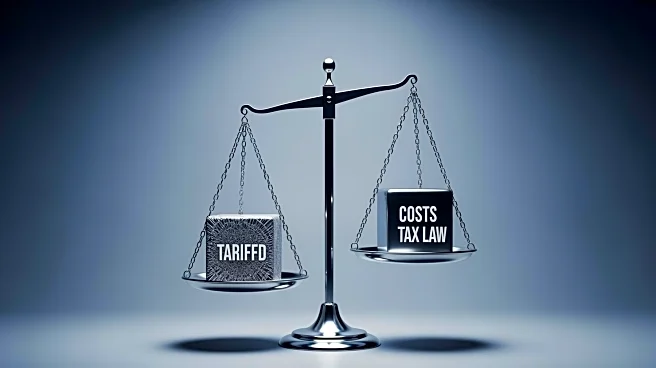What's Happening?
President Trump has signed an executive order suspending the 'de minimis' rule, which allowed low-value packages to enter the U.S. without import duties. This rule, in place since 1938, enabled American consumers to purchase inexpensive foreign goods online. The suspension means all shipments will now incur import taxes ranging from $80 to $200 for six months, after which rates will align with tariffs based on the country of origin. This change affects online retailers like Temu and Shein, which have benefited from the rule by shipping low-cost products from China. The decision is part of Trump's broader tariff strategy, which includes high tariffs on countries like China and Canada. Several international postal services, including those from Japan, Switzerland, France, and Australia, have paused shipments to the U.S. as they adjust to the new requirements.
Why It's Important?
The suspension of the 'de minimis' rule is significant as it alters the landscape for online shopping in the U.S., potentially increasing costs for consumers accustomed to low-priced foreign goods. This move is part of a larger strategy to protect U.S. businesses and address concerns about unregulated imports, including dangerous goods. The change could lead to higher prices for everyday items and impact small sellers who may pass on the increased costs to consumers. Additionally, the suspension may disrupt international trade relations, as evidenced by the temporary halt in shipments from several countries. This policy shift reflects ongoing tensions in global trade and the U.S. administration's focus on reshaping trade practices.
What's Next?
In the coming months, consumers and businesses will need to adapt to the new import tax structure. Large manufacturers might absorb some costs, but smaller businesses may pass them on to consumers. The international response, including potential adjustments in shipping practices and pricing strategies, will be crucial. The U.S. government may also face diplomatic challenges as affected countries negotiate new terms. Domestically, the policy could influence consumer behavior, potentially driving a shift towards more locally sourced products.









